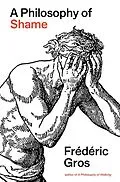Can shame become a source of political strength? Faced with injustice, growing inequality and systemic violence, we cry out in shame. We feel ashamed of obscene wealth amid wider deprivation. We feel ashamed of humanity for its ruthless and relentless exploitation of the earth. We feel ashamed of the racism and sexism that permeate society and our everyday lives.
This difficult emotion is not just sadness or a withdrawal into oneself, nor is it a paralysing sense of inadequacy. As Fr d ric Gros argues in A Philosophy of Shame, it arises when our perception of reality rejects passivity and resignation and instead embraces imagination. Shame thus becomes the expression of an anger that is a powerful, transformative force -one that assumes a radical character.
In dialogue with authors such as Primo Levi, Annie Ernaux, Virginie Despentes and James Baldwin, Gros explores a concept that is still little understood in its anthropological, moral, psychological and political depths. Shame is a revolütionary sentiment because it lies at the foundation of any path of subjective recognition, transformation and struggle.
Autorentext
FR D RIC GROS is Professor of Political Humanities at Sciences Po Paris. He edited Michel Foucault's books in the Biblioth que de la Pl iade (Gallimard) and his lectures at the Coll ge de France from 1981 to 1984. He is the author of a number of essays on con-temporary issues, including disobedience, shame and war. He is also the author of the bestselling book A Philosophy of Walking.
